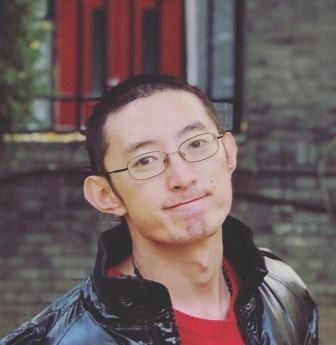Donald Trump may be considered as the president with the least democratic and the most autocratic characteristics in modern American history. As Trump has usually been mild, if not silent, on human rights abuses and encroachment of Western democratic values, and never concealed affinity and admiration for dictators and authoritarian values, it’s prevalently believed that human rights and freedom have never been on policy agenda of President Trump. However, based on Washington’s dealing with authoritarian China under Trump administration regarding freedom values, there might be a perceptible pattern, if not a strategy.
First, stay detached and uninvolved. Compared to his predecessors, President Trump was conspicuously silent on what’s seen as China’s “core interests” and seldom touched upon sensitive issues that might infuriate Beijing. While Barack Obama met Dalai Lama for multiple times, Trump didn’t meet Dalai Lama a single time. Whereas President Obama pressured former Chinese President Hu Jintao to respond to question of “human rights” and “freedom values” at press conference in 2011 and forcing Hu to admit that “China had a lot to do (on human rights)”, President Trump praised President Xi Jinping’s efforts to scrap presidential limit. As Obama administration actively intervened in negotiation for exile of activist Chen Guangcheng, Trump administration was seemingly indifferent to destinies of human rights activists in China. Even if Trump says something, these perfunctory remarks might be interpreted as the president’s caution, detachment or disinterest, which is well reflected in his earliest comment on Hong Kong protests.
Second, stay behind. Although the president remains seemingly unconcerned, a bunch of his White House staff, cabinet members and republican heavyweight lawmakers are tough towards China on human rights and freedom values. Staying behind his allies and subordinates who are on the frontline to vehemently criticize and speak against China’s human rights abuses and authoritarian values, the president might believe it’s unnecessary to talk about them anymore. The vice president Mike Pence, as the most outspoken China-critic with the longest of such track record in Trump’s administration, blasted China for spreading authoritarian values, met religious freedom advocates to discuss China and even threatened to sanction Chinese officials for human rights abuses. Besides, as human right has always been a component of the U.S. foreign policy, the Secretary of State Mike Pompeo also usually lashes out to China on its mishandling of human rights and religious freedom issues. While there’s no evidence to show it’s an intentional or coordinated approach, the fierce remarks of Trump’s cabinet members are, to some extent, effectively complementary to the President’s apparent mildness, if not outright apathy.
Third, stay pragmatic. As a businessman-turned-president, Trump is well-known for pragmatism or even opportunism and makes economic or trade a priority on the administration’s agenda. Since reaching a trade deal with China to end year-long trade war is currently the major and singular focus of President Trump, it’s not surprising that “human rights” approach is not pursued to an extent where the trade talks with China are complicated. That may be why Mike Pence postponed a speech marking the 30th Anniversary of 1989 Tiananmen crackdown and why Trump is reportedly reluctant to take a more assertive stance to send a message supporting Hong Kong demonstrators, so that it may create a favorable atmosphere for President Trump to negotiate with President Xi. Therefore, the topic of human rights only surfaces when it is needed to serve other higher-ranking policy goals.
Fourth, stay bluffing. Last, human rights issue sometimes is employed as an exercise, if not a tool, to pressure China to make concession on other issues. The Trump administration threatened to blacklist Hikvision, a Chinese manufacturer of video surveillance device and facial recognition scanning system that are used regarding to reported human rights abuses in China’s northwestern Xinjiang Autonomous Region, which may effectively ban the company to purchase American technologies. As there’s no further evidence to show that such sanction would be materialized, this threatened blacklisting is very likely Trump’s usual bluffing tactic to gain leverage in ongoing trade negotiation.
Some analysts contend that the administration’s mixed or contradictory signals on human rights may compromise U.S. stance on democratic values, thus worrying that Trump’s putting trade agenda over human rights may embolden China. However, there’s may be some rationales behind such approach. First, criticizing China on human rights may cause embarrassment, which only matters its face, while creating economic troubles is more threatening for it effectively undermines the regime’s legitimacy. Trump may only intend to reap more economic benefits for America from wielding a trade war with China, but since the legitimacy of the CCP regime is built on economic growth it delivered in past decades, the regime legitimacy may become a collateral damage. Second, President Trump’s detachment on human rights may help the administration get rid of the accusation that America is interfering into China’s internal affairs because China has already pointed fingers at the U.S. as “black hand” behind Hong Kong protest.
Image credit: Skidmore [CC BY-SA 2.0], via Wikimedia Commons
The Views and opinions expressed in this article are those of the author and do not necessarily reflect the official policy or position of The Geopolitics.

Keyu Chen served as financial translator for Goldman Sachs, J.P. Morgan and Deutsche Bank. He holds M.A. in international journalism and communication from Beijing Foreign Studies University. He’s interested in political communication, comparative politics and international relations.

